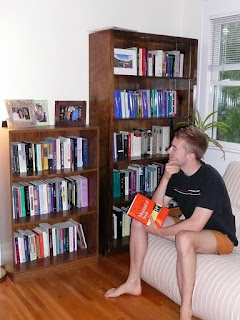Winter 2018 at Bryn Mawr College
Power, Plato, and the Good Life! Winter has arrived and I'm reprising two beloved courses from the past: Power and Resistance , which I first taught at Deep Springs College ( original syllabus here ) in Fall 2013, and Introduction to Ancient and Early Modern Political Philosophy , which I taught at Bryn Mawr ( original syllabus here ) in Fall 2015. I'm grateful to have the chance to rework and update these courses for new students and new times. Three weeks into classes, it has been delightful. In this year's Power and Resistance ( syllabus ) , students will choose a topic such as "Power, Violence, and the State" or "Exploitation and Economic Power" and then map how the key theoretical texts we're reading joined and influenced an intellectual conversation stretching from the past into the future. The course follows the reading schedule of my Spring 2015 iteration ( syllabus here ), but I have changed the writing projects to introduce students to b...
